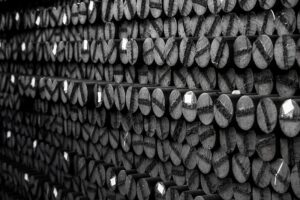
Investment company BGV Group Management in 2024 plans to begin construction of a plant to produce graphite concentrate and spherical granite on the basis of Balakhovskoye deposit (Kirovograd region).
“BGV’s team is currently performing the second stage of pilot tests of the processing plant and completing the design of the production complex and graphite pilot tests on the Balakhovskoye project. Next year, the company plans to start building one of the largest production complexes in Europe,” BGV Group Management said in a press release.
According to its data, the facility’s potential capacity will be 50,000 tons of graphite concentrate per year and 19,000 tons of spherical graphite for lithium-ion batteries. The company expects that such volume will be able to cover a significant part of the European Union market demand.
BGV is also working on a pre-feasibility study for the Perzhansky complex beryllium deposit (Zhytomyr region) and expects to present the results to investors soon. According to its data, the deposit has reserves of 2.34 million tons of ore. In addition, it also has reserves of zinc, rare earth elements and other materials.
Investments in extraction and further processing of raw materials are one of the main focuses of the company, BGV Group Management board member Sergii Voytsekhovskii said during the presentation of projects at Ukraine Recovery Conference 2023 in London. According to him, the investments of the group and its founder Gennady Butkevich in the Ukrainian mining projects amounted to over $100 mln in eight years.
BGV Group Management is an investment company, which develops businesses and projects in mining, processing, energy efficiency, retail and development. Its founder Gennady Butkevich is also a co-owner of ATB Corporation
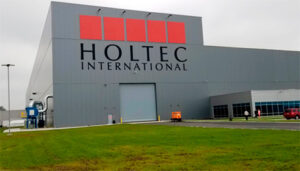
NNEGC Energoatom President Petr Kotin and U.S. Holtec International President and CEO Chris Singh on April 21 signed an agreement on cooperation in the deployment of small modular reactors (SMRs), which provides for construction of up to 20 SMR-160 reactors, with implementation of the first pilot project and reaching minimum regulated reactor capacity and grid connection by March 2029.
According to Energoatom’s Web site on Saturday, Kotin signed the agreement in Kiev and Singh signed it in Camden, New Jersey, USA. Ukrainian Energy Minister Herman Galushchenko and Riaz Awan, Holtec International’s vice president of operations in Ukraine, also attended the ceremony.
“The construction of the SMR in Ukraine will not only contribute to strengthening the energy security of the state, but will also make it possible to replace the thermal power capacity destroyed by Russian attacks and achieve the goals of decarbonization. Ukraine has a significant human resource potential for the development of leading nuclear technologies and will make every effort, particularly in cooperation and with American partners, to oust the Russian nuclear industry from the world market. MMR is a powerful technology which will also allow us to decentralize generation,” Galushchenko said.
According to Energoatom’s president, the agreement with Holtec International “is based on 20 years of successful cooperation between the companies.” “It will enable the introduction of promising, safe, clean, reliable and efficient small modular reactor technologies and make Ukraine the world’s leading country in clean energy,” Kotin said.
The document also envisages the deepening of cooperation between the companies to strengthen the energy security of Ukraine. In addition, the agreement will contribute to the universal decarbonization of the Ukrainian energy sector, strengthen Ukraine’s energy independence and begin high-tech production of parts for SMRs in our territories.
“We are grateful to esteemed Energy Minister Galushchenko and the esteemed President of Energoatom, representing the government of Ukraine, for restoring your nation’s confidence in our company by choosing our extremely safe SMR-160 reactors and Holtec International as a partner to meet the country’s clean energy needs…We are committed to helping the Ukrainian people rebuild their energy infrastructure when Russian aggressors are driven from the country,” Singh said at the signing ceremony.
According to Energoatom, Holtec International, their longtime partner, served as the contractor for the Centralized Spent Nuclear Fuel Storage Facility, which went into operation in April 2022.
The SMR-160 is a 160-MW pressurized light-water reactor that uses low-enriched uranium as fuel and is flexible to produce process heat for industrial applications and hydrogen production.
“Energoatom is the operator of all four operating nuclear power plants in Ukraine. It operates 15 power units equipped with water-water power reactors with a total installed electric capacity of 13.835 GW.
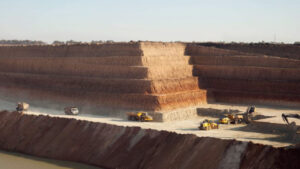
Velta Group of Companies with titanium ore mining assets in Novomirgorod (Kirovograd Region) decided to build a plant to produce titanium products using its own innovative technology in the United States instead of Ukraine and the UAE because of the war.
The company’s president, Andrei Brodsky, said on Facebook on Sunday that it has been more than two weeks since he returned from a business trip to Washington, D.C.
“Before the full-scale war began, we, VELTA, were starting to build a pilot plant to make titanium products using our own technology. We obtained a lease on an industrial facility in Novomoskovsk, began repair and construction work and the purchase of equipment. We also received a long-term lease on the territory of a former mine next to our mining and processing facility in Novomirgorod in Kirovograd region and began designing a large enterprise. It has to be a new Ukrainian industrial giant. Everything was stopped by the war”, stated the CEO.
According to him, near the future enterprise “two Russian missiles flew in, right above our mine our air defense shot down another one, there was a threat of a quick breakthrough front”.
In order “not to give high-tech developments to the enemy,” they decided to create the first enterprise for the processing of titanium raw materials outside of Ukraine. “It was a forced and very difficult decision,” said the co-founder of VELTA.
At the same time, he noted that the company had very strong ideas to build an enterprise in the UAE.
But the UAE has taken an unclear position with regard to Ukraine, “Kadyrovites and simply fugitive Russians have created their own almost hub there, and I stopped to consider Dubai or Abu Dhabi as an attractive haven,” Brodsky said. He also noted that he had to reformat his plans concerning titanium products: “Even now I really want to produce purely civilian products. And we are going to do that. Perhaps later… Now the market says completely different things. The world has completely changed with the start of a full-scale war in Ukraine.
According to Brodsky, it was decided to build the company in the United States, which is Ukraine’s main and reliable ally in the fight against Russian invaders and also the leading leader in technology and weapons production.
PKF VELTA LLC was registered in April 2000. The main activity is the extraction and production of ilmenite concentrate.
VELTA Holding LLC owns 100% of PKF VELTA LLC. The ultimate beneficiaries are three individuals: Andrey Brodsky (60%), Vadim Moskalenko (20%) and Vitaly Malakhov (20%).

Mining company Rio Tinto PLC plans to create another, larger, plant to process iron ore for subsequent steel smelting, operating on raw biomass instead of coking coal.
The decision was made after the success of the first pilot project implemented in Germany, writes MarketWatch. The project has been running for the past 18 months in conjunction with Finland’s Metso Outotec and the University of Nottingham.
“The results of the first test phase are very promising,” said Rio Tinto Chief Commercial Officer Alf Barrios.
The location of the new plant has not yet been selected.
The steel industry accounts for 8 percent of the world’s carbon dioxide emissions, MarketWatch noted. Creating yellow ore processing plants using biomass instead of coal would help Rio Tinto’s plans to reduce emissions.
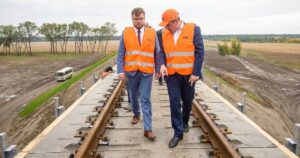
Ukrainian agrarians have applied to the authorities of the Republic of Poland with a request to lay a broad-gauge railway line (with a gauge of 1520 mm) across its territory, which will connect the port of Polish Gdansk with the Ukrainian and Lithuanian railway networks to export agricultural products and ensure strategically important imports through western borders of Ukraine.
The corresponding appeal to the President of the Republic of Poland Andrzej Duda and its Prime Minister Mateusz Morawiecki was sent by the leading Ukrainian agrarian associations: the All-Ukrainian Agrarian Council (VAR), the Agrarian Union of Ukraine, the Ukrainian Agrarian Business Club, the All-Ukrainian Association of Communities, the Union of Poultry Breeders of Ukraine and the Ukrainian Agrarian Confederation, reportedly on the VAR website on Friday.
According to the appeal, one of the largest and closest European ports to Ukraine is the port of Klaipeda (Lithuania), which has significant free transshipment capacities. However, due to differences in the gauge between Poland, Ukraine and the Baltic countries, there is a need to reload the contents of wagons at border crossings between countries or rearrange wagon bogies, which does not allow to fully realize the export-import potential of the port of Klaipeda.
In turn, the use of vehicles or containers as an alternative to railway transportation is poorly suited for transporting bulk bulk cargo (coal, ore, grain, metal) over long distances and increases their cost to an uncompetitive level. In addition, in the case of using container terminals, the capacity of the railway line will be limited by their capacity, which will also prevent full use of the potential.
“In our opinion, the laying of a railway line with a gauge of 1520 mm across the territory of the Republic of Poland, which will connect the Ukrainian and Lithuanian railway networks, as well as connect the port of Gdansk to them for the transport of goods and passengers, will solve the above-mentioned problems,” the appeal of the Ukrainian farmers.
At the same time, it is emphasized that such a logistical path will give significant positive financial and economic effects for Poland and Ukraine, not only due to an increase in export-import capacities, but also due to the unification of the economic space of Poland, the Baltic countries and Ukraine.
Such a project can be implemented through the reconstruction of the existing railway network and the construction of a combined track, or the construction of a separate railway branch.
As reported, in June 2022, Polish Deputy Prime Minister Yaroslav Kaczynski said that the issue of building this broad-gauge railway track had already been tentatively approved by the Polish and Ukrainian governments.
In early June, the VAR already proposed to build 300 km of broad-gauge railway tracks in Poland for direct grain deliveries to the Lithuanian port of Klaipeda, which would allow not to overload the contents of wagons at the Ukraine-Poland and Poland-Lithuania border crossings due to the difference in railway gauge in these countries.
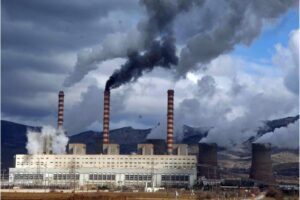
As part of the waste treatment reform, Ukraine is implementing the first major investment project: within two years, two modern incineration plants with a total processing capacity of 145,000-220,000 tonnes of waste per year will be built in Kyiv region.
According to Minister of Environmental Protection and Natural Resources of Ukraine Ruslan Strilets, on September 8 he and Head of Kyiv Regional State Administration Oleksiy Kuleba, Mayor of Boryspil Volodymyr Borysenko, Mayor of Brovary Ihor Sapozhko and Mayor of Fastiv Mykhailo Netiazhuk signed a memorandum of cooperation, effectively securing the intention to build waste processing enterprises.
“Two modern plants for household waste treatment will be built on the territory of Boryspil, Brovary and Fastiv communities. Their uniqueness lies in the use of several processing technologies at once. In particular, organic waste (food waste) will be processed with subsequent production of biomethane, as well as deep sorting of waste with the allocation of resource-valuable materials – scrap metal, glass and plastic,” the minister wrote on Facebook on Thursday.
The planned capacity of the common plant for the Brovary and Boryspil communities will be approximately 110,000-120,000 tonnes of waste per year, Fastiv – 35,000-100,000 tonnes per year. The construction period will be two years, the projects will be implemented at the expense of loans from European banks.
According to Strilets, negotiations are underway with potential investors who have long been waiting for the adoption of a law on waste management in Ukraine. The minister recalled that the waste management reform was launched by the adoption by the Verkhovna Rada in July of bill No. 2207-1-D, which creates transparent conditions and guarantees for investments in this sector of the economy.
The minister specified that Kyiv region was chosen for the implementation of the reform, since amid the Russian full-scale invasion, the capital and the capital region demonstrated the stability and invincibility of the entire country.